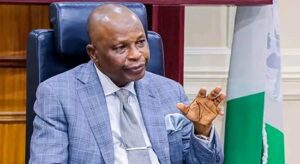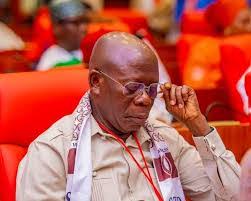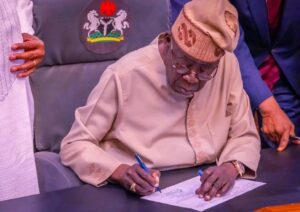Judge Who Ruled Against Sanusi Held Virtual Hearings Recently

Legal experts have offered different views about the judicial order that was recently given stopping the reinstatement of Muhammadu Sanusi II as Emir of Kano
The allegation made by Governor Abba Yusuf that Justice Mohammed Liman of the Federal High Court in Kano granted an order stopping the reinstatement of Sanusi Lamido as the 16th Emir of Kano from the United States is generating serious controversy among lawyers in the country.
While some argued that if the court proceedings are conducted virtually, the judge can sit anywhere because he has a global jurisdiction, others contended that the Nigerian judicial system follows territorial authority. Judges typically exercise jurisdiction within Nigeria’s borders.
LEADERSHIP Sunday reports that the rules of the Federal High Court provide that judges can conduct judicial activities outside the country in certain circumstances, like when the court judge participates in international arbitration proceedings held outside Nigeria.
Also, in rare cases, a judge may conduct hearings or proceedings in another country with the consent of the parties involved and the Chief Judge’s approval.
However, the Federal High Court has embraced virtual court proceedings, also known as remote hearings. However, a situation where a judge sits over a case virtually from outside the country is controversial.
The judge, in the eyes of the storm, is a very senior judicial officer who handled high-profile cases before he was transferred outside the Lagos jurisdiction of the court.
He has been sitting virtually on some old Lagos cases from his Kano base by the court’s rules.
On May 7, 2024, Justice Liman convicted and sentenced a plastic surgeon and founder of MedContour Services Ltd., Dr Anuoluwapo Adepoju, for failing to appear before the Federal Competition & Consumer Protection Commission (FCCPC) about an investigation into a failed plastic surgery that resulted in the death of one Nneka Onwuzuligbo in 2020.
This judgment was delivered virtually.
Also, on May 17, 2024, during a visual court hearing, he fixed June 3 for judgment in the money laundering trial of a former speaker of the Lagos State House of Assembly, Adeyemi Ikuforiji.
He has also been conducting the case of the Economic and Financial Crimes Commission (EFCC) against Four directors of Petrol Union Oil and Gas Company Limited, accused of an alleged £2.556 billion fraud.
In his reaction to the controversy, a Professor of law, Ademola Adaranijo, said that the judge had not done anything wrong. However, he is unsure of the allegation because there has not been an official response from the court’s authority or the judge.
Adaranijo stated that in law, when it comes to online offences, jurisdiction is global. He said that if someone committed an offence of cyberstalking, for example, in Enugu, he can be tried anywhere in the country because you can not limit the Internet to a particular location.
He said, “In the same vain if the judge is sitting online, he can conduct the proceeding from anywhere as long as the parties agree.
But a Lagos lawyer, Michael Okpu, disagrees with his colleague’s opinion; he said a judge must have access to necessary resources, files, or support staff to handle cases effectively.
He said, “The National Judicial Council’s (NJC) Guidelines for Virtual Court Proceedings (2020) only allowed virtual hearings in certain circumstances, such as urgent matters, interlocutory applications, pre-trial conferences and simple civil cases.
“However, the guidelines mandate that the judge, parties, and legal representatives be within Nigeria’s territorial boundaries during virtual proceedings.
“So, a judge of the Federal High Court of Nigeria cannot sit over a case virtually from outside the country; he must be within Nigeria’s borders to participate in virtual court proceedings,” he said.
[Leadership]






